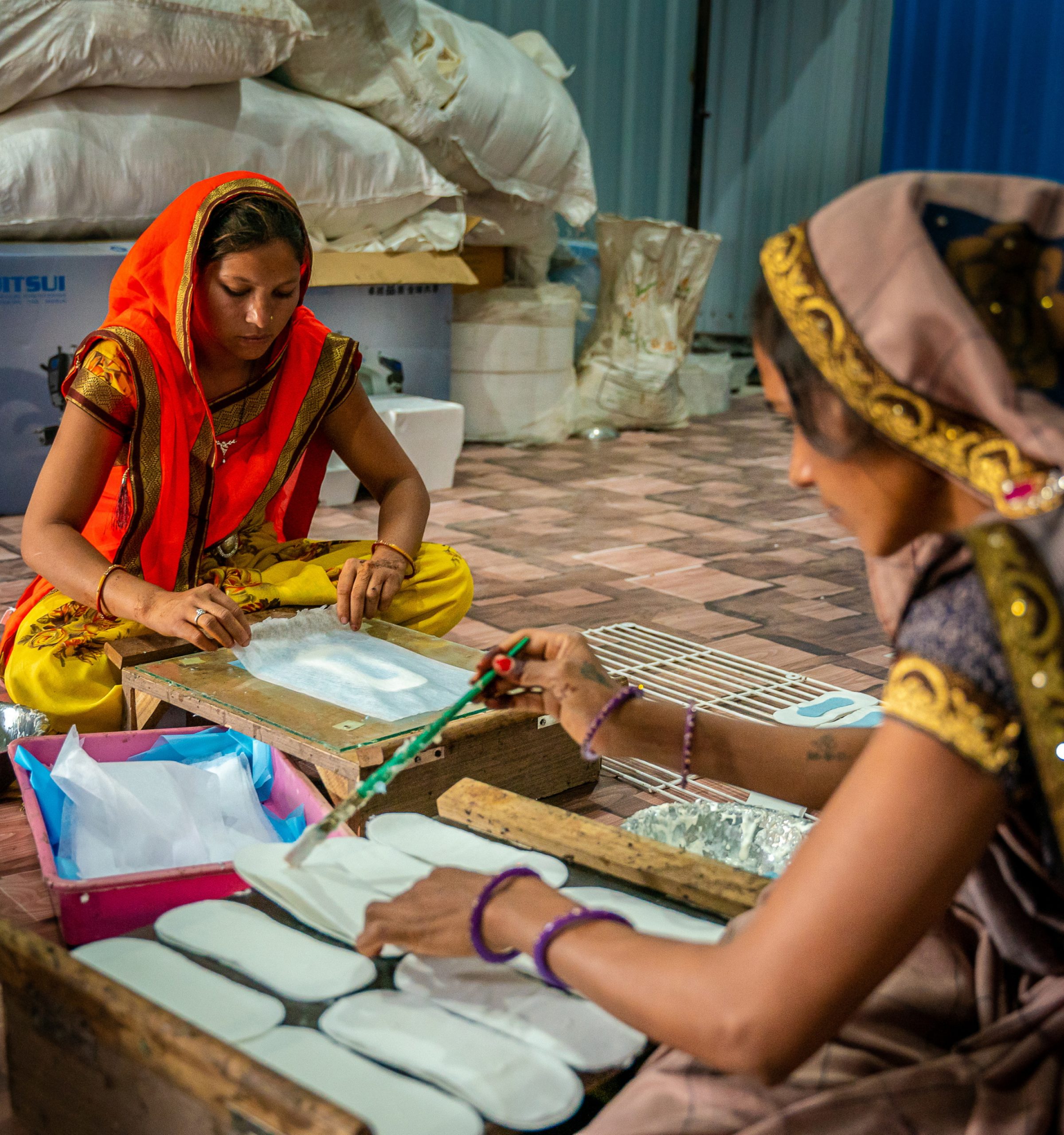Community Action Labs (CAL) are real-time, on-location labs where active experimentation focuses on finding prototype solutions that work. The intention is to develop working programmes that have real impact and can be scaled up across regions, which helps inform national policies.
Through CALs we implement ideas on-the-ground at the block level, which are designed to rigorously collect evidence on the efficacy of the models. The objective is to enable synergy between the state and rural administrations, and the market. With scaling up being the primary motive, evidence to policy is pivotal when we plan the development design.


As the name suggests, our CAL teams collaborate with women collectives or self-help groups (SHGs), Panchayats and other community organisations. The SHGs are a collective of badlao didis – change-making women who are trusted local volunteers from the community. They are able to influence peers and community leaders by demonstrating how change will be beneficial for them. Collective action and peer pressure ensures accountability of services and products for the community.
Community collectives transform lives within their community through activities related to livelihood, health, education and skill-building.
Localised and place-based
Self driven by aspirations of the community
Sustainable through market, government and community synergies


We first raise awareness about the state programmes available to the community, which then creates demand and ensures delivery of those services. Knowing what programmes are available also helps women claim their rights, which helps shift perception on gender.


Next, we help these women set aspirational, yet realistic, income goals for themselves.


Then we assess the likely challenges they will face and find ways to address them by partnering with other nonprofits, government agencies and private enterprises.
Reach us at
TRI Square,
43 Community Centre Zamrudpur,
Kailash Colony Extension,
Behind Hanuman Mandir,
New Delhi,
Delhi 110048
+91 11 2923 1314